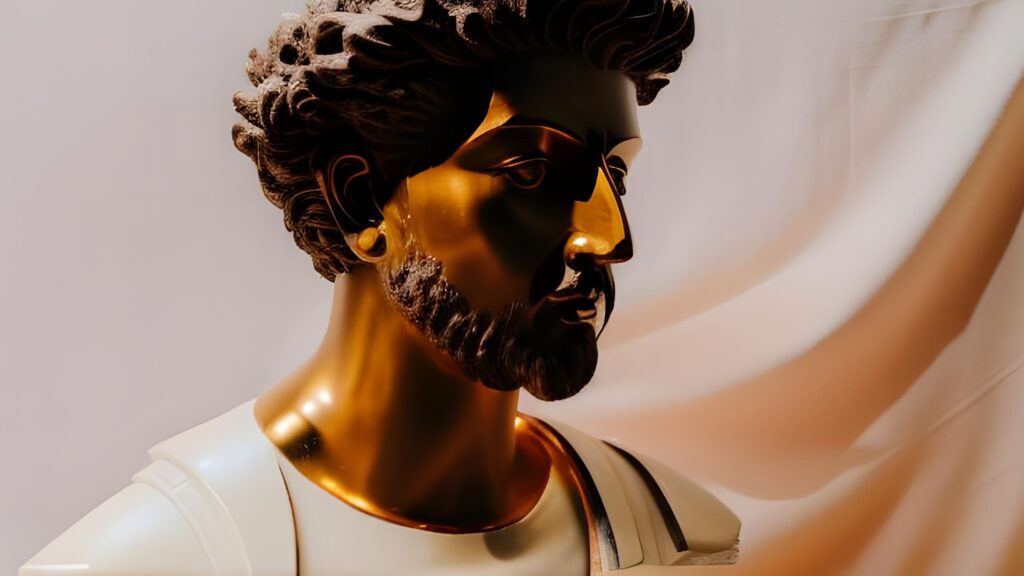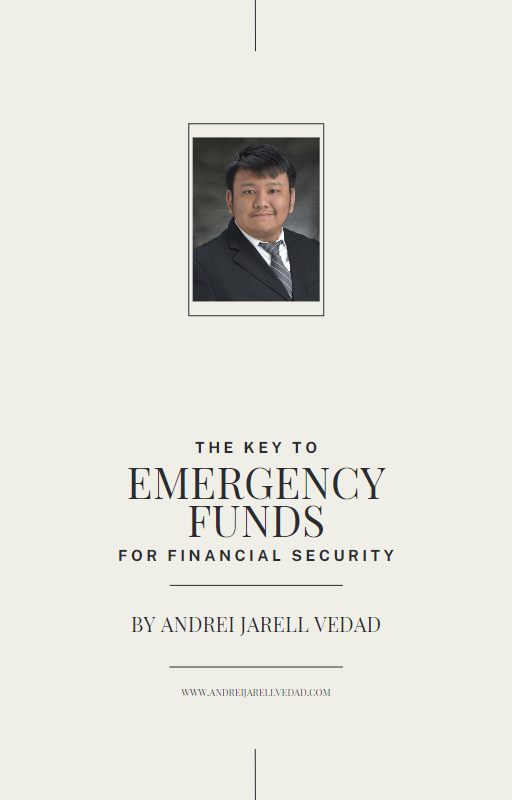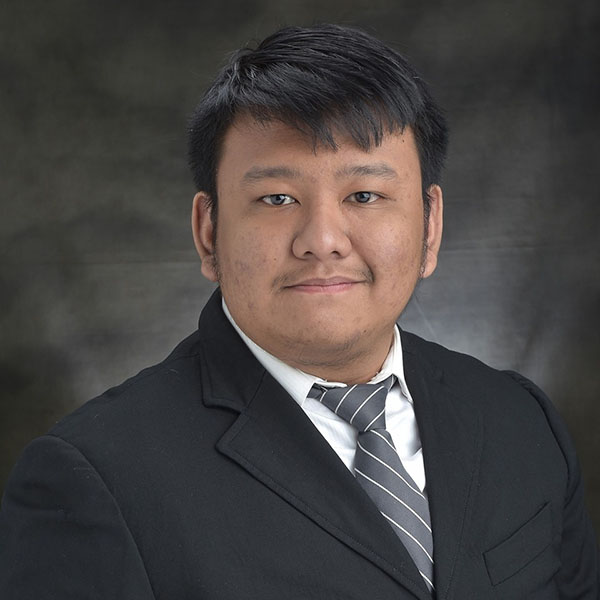
Table of Contents
Stoicism for Filipinos: An Introduction
Stoicism is a philosophy that originated in Ancient Greece, but it has gained renewed interest in recent years. It is a practical philosophy that emphasizes personal ethics and a focus on what one can control. Stoicism can be particularly beneficial for Filipinos who are facing challenging times due to the COVID-19 pandemic, economic instability, and political uncertainty. In this article, we will explore Stoicism and its relevance for Filipinos.
Focus on What You Can Control
One of the central principles of Stoicism is to focus on what one can control. In life, there are many things beyond our control, such as natural disasters, the actions of others, and even our own emotions. However, there are also many things within our control, such as our thoughts, attitudes, and actions. By focusing on what we can control, we can reduce stress and anxiety, and increase our sense of agency and purpose.
For Filipinos, this principle can be particularly relevant in the current context of uncertainty and change. The COVID-19 pandemic has disrupted many aspects of life, from work to education to socializing. Political instability and economic challenges have added to the sense of uncertainty. By focusing on what one can control, Filipinos can develop a sense of resilience and adaptability in the face of these challenges.
The Dichotomy of Control
Another key Stoic principle is the dichotomy of control. This principle holds that there are two types of things in life: things that are within our control and things that are outside of our control. The goal of Stoicism is to focus on the former and let go of the latter. This can be a difficult principle to live by, as it can be tempting to try to control things that are beyond our control.
For Filipinos, the dichotomy of control can be particularly relevant in the context of social and political issues. There are many issues in the Philippines that are beyond the control of individual citizens, such as corruption, poverty, and inequality. By accepting that these issues are beyond their control, Filipinos can focus on the things that are within their control, such as their own attitudes and actions.
The Discipline of Assent
The discipline of assent is another Stoic principle that can be relevant for Filipinos. This principle holds that we should be careful about what we give our assent to, or what we believe to be true. We should only give our assent to things that are based on reason and evidence, and we should be wary of beliefs that are based on emotion or popular opinion.
In the context of the Philippines, there are many beliefs and opinions that are based on emotion or popular opinion, rather than reason and evidence. By practicing the discipline of assent, Filipinos can develop a more rational and evidence-based approach to life.
Conclusion
Stoicism is a philosophy that can be particularly relevant for Filipinos in the current context of uncertainty and change. By focusing on what one can control, accepting the dichotomy of control, and practicing the discipline of assent, Filipinos can develop a sense of resilience and adaptability in the face of challenges. Stoicism can provide a framework for personal growth and ethical behavior, and can help Filipinos navigate the complexities of modern life.
FAQs
What is Stoicism?
Stoicism is a philosophy that originated in Ancient Greece, and emphasizes personal ethics and a focus on what one can control.
How can Stoicism be relevant for Filipinos?
Stoicism can be relevant for Filipinos in the current context of uncertainty and change, as it provides a framework for resilience, adaptability, and personal growth.
What are some Stoic principles that can be useful for Filipinos?
Stoicism is a philosophy that focuses on the development of self-control, rational thinking, and inner calmness. These principles can be especially useful for Filipinos who face daily challenges, such as traffic, poverty, and political unrest. Some Stoic principles that can be helpful for Filipinos include:
Acceptance: One of the core Stoic principles is acceptance, which involves accepting what cannot be changed and focusing on what can be controlled. Filipinos can apply this principle to the challenges they face, such as the traffic or the political situation, by accepting them as a part of their daily lives and focusing on what they can control, such as their own reactions and emotions.
Gratitude: Another Stoic principle is gratitude, which involves focusing on what one has rather than what one lacks. Filipinos can apply this principle by focusing on the positive aspects of their lives, such as their family, friends, and community, and expressing gratitude for them.
Resilience: Stoicism teaches that setbacks and obstacles are an inevitable part of life and that one should develop the resilience to bounce back from them. Filipinos can apply this principle to the challenges they face by developing the resilience to overcome them, whether it’s by finding alternative routes to avoid traffic or by participating in peaceful protests to voice their concerns.
Virtue: Stoicism emphasizes the development of virtues such as courage, wisdom, and justice. Filipinos can apply these virtues to their daily lives by striving to act with courage and wisdom in difficult situations, and by treating others with justice and fairness.
How can Filipinos learn more about Stoicism?
Filipinos who are interested in learning more about Stoicism can do so by reading the works of the Stoic philosophers, such as Epictetus, Seneca, and Marcus Aurelius. There are also modern Stoic authors, such as Ryan Holiday and Massimo Pigliucci, who have written accessible books on Stoicism. Additionally, there are online communities and forums dedicated to Stoicism, where Filipinos can connect with others who share their interest in the philosophy.
Is Stoicism compatible with Filipino culture and values?
While Stoicism originated in Ancient Greece and Rome, its principles are universal and can be applied to any culture or society. In fact, some Stoic principles, such as resilience and acceptance, are already part of Filipino culture and values. By incorporating Stoic principles into their daily lives, Filipinos can develop the inner strength and resilience needed to face the challenges of modern life.
Is Stoicism a religion?
No, Stoicism is a philosophy that emphasizes rationality, self-control, and acceptance of the present moment. While it has some similarities to certain religious beliefs, it is not a religion in and of itself.
Do I have to give up my faith to practice Stoicism?
No, Stoicism is a philosophy that can be practiced alongside any faith or belief system. It does not require you to give up your existing beliefs, but rather offers a framework for living a more fulfilling life.
How can Filipinos practice Stoicism in their daily lives?
Here are some practical ways that Filipinos can incorporate Stoic principles into their daily lives:
Focus on what you can control: Many things in life are beyond our control, but we can control our reactions to them. Rather than stressing over things you can’t change, focus on what you can control.
Practice gratitude: Appreciate the good things in your life and focus on the positive. This can help you maintain a sense of perspective and keep you from getting bogged down in negative emotions.
Embrace challenges: Stoicism teaches that challenges are opportunities for growth. Instead of avoiding difficulties, embrace them as a chance to learn and improve.
Practice self-reflection: Take time each day to reflect on your thoughts and actions. This can help you identify areas where you can improve and make positive changes in your life.
Don’t let emotions control you: Stoicism emphasizes the importance of rational thinking over emotional reactions. Rather than being ruled by your emotions, strive to approach situations with logic and reason.
Incorporating these principles into your daily life can help you develop a stronger sense of resilience and control over your thoughts and actions.
Can Stoicism help with mental health issues?
Stoicism can be a helpful tool for managing mental health issues. By promoting rational thinking and self-control, it can help individuals develop a stronger sense of resilience and control over their thoughts and actions.
Is Stoicism compatible with Christianity?
Stoicism and Christianity share some common values, such as humility, self-control, and compassion. However, there are also some differences between the two. Ultimately, whether or not Stoicism is compatible with Christianity is a matter of personal belief.
Can Stoicism help with personal growth?
Yes, Stoicism can be a helpful tool for personal growth. By promoting self-reflection, resilience, and rational thinking, it can help individuals identify areas where they can improve and make positive changes in their lives.
Is it necessary to fully embrace Stoicism to benefit from its principles?
No, it is not necessary to fully embrace Stoicism to benefit from its principles. Even incorporating some of the basic principles into your daily life can help you develop a stronger sense of resilience and control over your thoughts and actions.
Can anyone practice Stoicism?
Yes, Stoicism is a philosophy that can be practiced by anyone, regardless of their background or beliefs.
Are there any famous Filipinos who practiced Stoicism?
While there are no famous Filipinos who are known specifically for practicing Stoicism, many Filipinos have found value in Stoic principles and have integrated them into their own lives.
Author’s Note
I learned about Stoicism back when I was in college, and I’ve been living the life of a Stoic ever since. Stoicism helped me a lot in my life. But I’m still flawed, there are times when my emotions took control of me. Nobody is perfect, and you don’t have to fully embrace Stoicism, I believe it’s just a guideline on how to live your life.
Get My E-books For Free!


Take control of your financial future and download my e-books: “Ways to Secure Your Finances Right Now” and “The Key To Emergency Funds For Financial Security” today! This comprehensive guides are packed with practical strategies and expert advice to help you achieve financial security and improve your financial literacy.
By subscribing to my Substack Newsletter, you’ll gain access to exclusive content, regular updates, and valuable insights on personal finance. You’ll stay informed about the latest financial trends, investment opportunities, and money-saving tips.
Don’t miss out on this opportunity to equip yourself with the knowledge and tools needed to secure your financial future. Join our community of motivated individuals who are committed to achieving financial freedom and success.
Subscribe to my Substack Newsletter today and get instant access to the e-book “Ways to Secure Your Finances Right Now.” Take the first step towards a brighter financial future. Your journey to financial security starts now!
Affiliate Links Disclaimer
My blog posts contain referral/affiliate links, so I can potentially earn via commission. It would help me a lot when you use my referral/affiliate links

Andrei Jarell Vedad is a passionate financial literacy advocate from the Philippines. With a background in Information Technology and currently pursuing a law degree, Andrei combines his knowledge and expertise to empower individuals in managing their personal finances. Through his blog and extensive research, he shares practical tips, strategies, and thought-provoking articles to help readers make informed financial decisions and achieve their financial goals. With a global perspective, Andrei aims to inspire positive change and foster financial well-being, not only in the Philippines but also worldwide.


